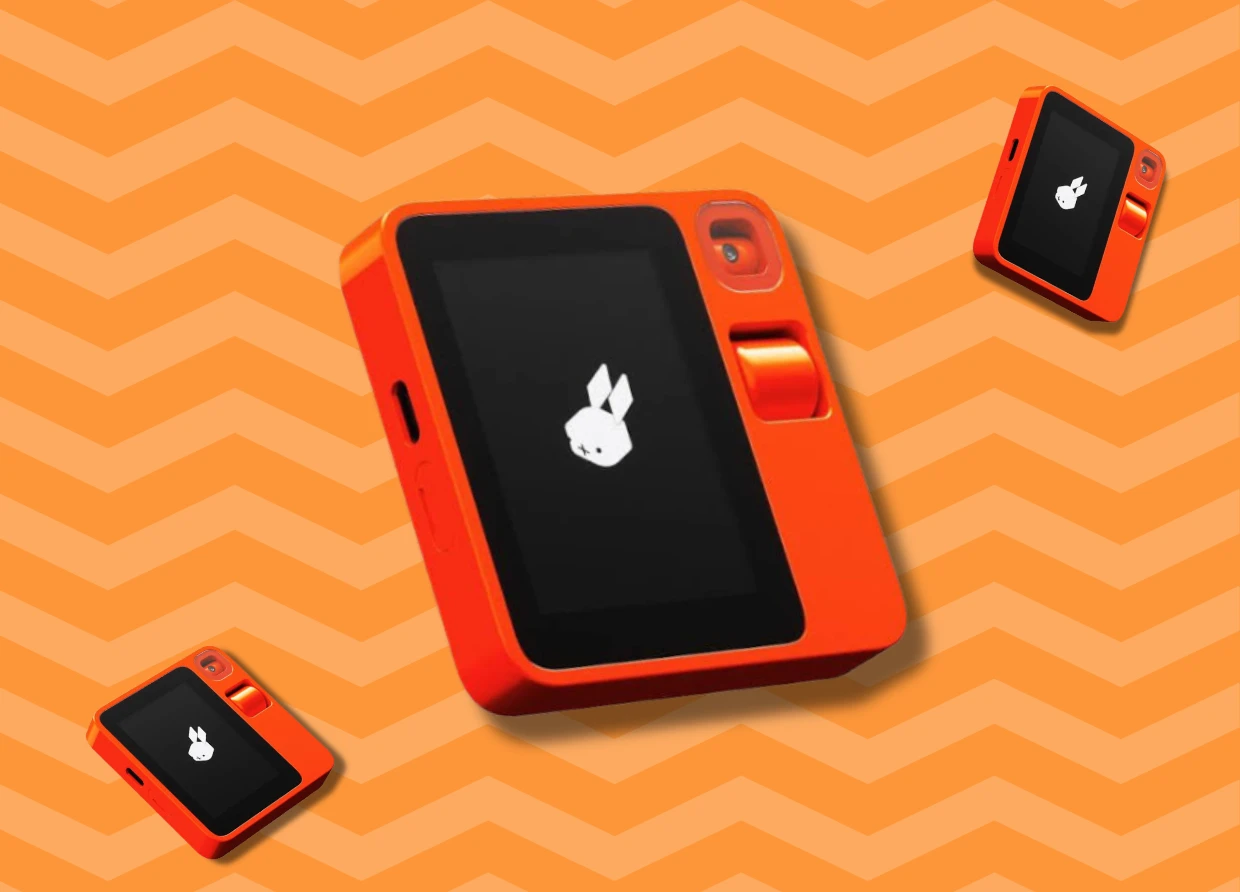RABBIT R1 AI ASSISTANT: A TECH THROWBACK MAKING WAVES IN 2024
The Rabbit R1 AI Assistant: A Retro Resurgence Redefining Tech Interaction

Rabbit CEO Jesse Lyu has managed to evoke a sense of nostalgia with the debut of the Rabbit R1 AI Assistant, marking a full-circle moment in the ever-evolving world of technology. Lyu's vision, inspired by a desire to simplify the smartphone experience, has struck a chord with consumers, leading to the rapid sellout of the initial 10,000 units of the Rabbit R1.
A Peek into Rabbit R1's Retro Futurism
Unveiled at CES 2024, the Rabbit R1 stands out as a $200 handheld AI assistant with a distinctive square design reminiscent of a walkie-talkie, adorned in eye-catching orange hues. Developed in collaboration with Teenage Engineering, this palm-sized device features a 2.88-inch touchscreen, a camera, a control wheel, speakers, and microphones. Surprisingly lightweight and half the size of an iPhone 15, the Rabbit R1 runs on a 2.3GHz MediaTek processor, boasting 4GB of memory and 128GB of storage.
However, what sets the Rabbit R1 apart is its refusal to conform to the conventional smartphone paradigm. Lacking traditional apps, the device relies on Rabbit OS and operates on a Large Action Model (LAM) AI, designed to navigate app interfaces and execute tasks through voice commands.
The LAM Factor: Adaptable and Expandable
The Rabbit R1's uniqueness lies in its LAM, an adaptable AI model that learns and interacts with new applications. This adaptability enables the device to expand its capabilities beyond pre-installed apps, making it a versatile tool for a range of tasks. Users can even take advantage of the dedicated training mode to teach the R1 specific commands, enhancing its utility over time.
Despite its potential, the practicality of the Rabbit R1's adaptability is still uncertain, as only the model owned by Lyu exists at this moment, according to The Verge's hands-on experience.
The Unprecedented Popularity
The Rabbit R1 has gained swift and sudden popularity, evident from the sellout of both the initial 10,000 units and the subsequent batch scheduled for March. The device's appeal lies in its promise to fundamentally change how humans interact with technology, diverging from the trend of integrating with existing operating systems.
As the Internet of Things (IoT) took center stage at CES 2024, the Rabbit R1's departure from the norm by offering a more focused and less intrusive digital experience resonated with consumers. It appears that amidst the race for connectivity and smart homes, there's a growing market for a simpler, more nostalgic approach to technology.
However, with the tech community already showcasing the ability to emulate the Rabbit AI on smartphones, questions arise about the device's long-term impact and whether it truly represents a groundbreaking shift in tech or merely a stylish detour.
For now, eager consumers will have to wait for the next round of preorders in the spring to get their hands on what some are dubbing the "iPhone moment for the AI era." Whether the Rabbit R1 will live up to the hype or become a mere footnote in tech history remains to be seen, but its sudden surge in popularity undeniably signals a changing tide in consumer preferences.
#THE S MEDIA #Media Milenial #Rabbit R1 #AI Assistant #Technology #CES 2024 #IoT #Voice Assistant #Adaptable AI #Smartphone Alternative #Nostalgic Tech #Consumer Electronics #Digital Experience #Full-Circle Moment #Tech Trends #Future of Interaction #Internet of Things #CES Highlights #Innovative Gadgets #Jesse Lyu #Teenage Engineering #Rabbit OS #Large Action Model #Consumer Preferences #Hands-on Review #Preorders #Smartphone Integration #Retro Futurism #Digital Assistants


























